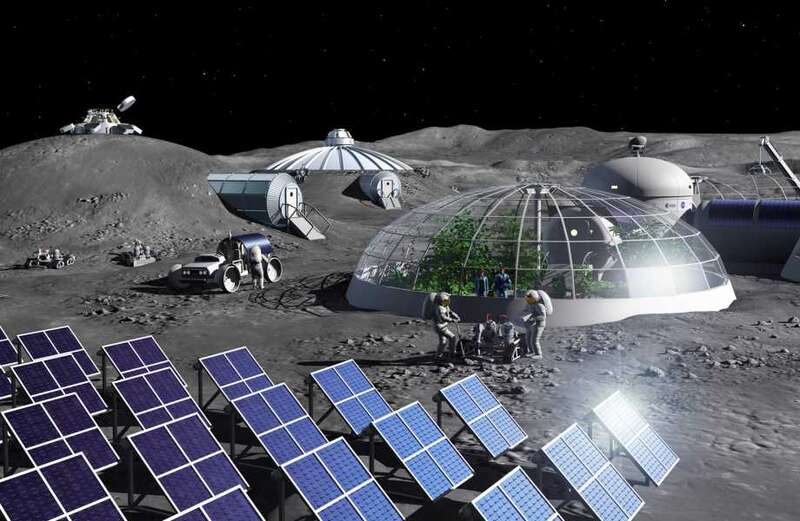AMERICAN and Chinese lunar colonies might be just a decade away – but there are some serious risks.
A senior scientist has detailed plans for long-term Moon bases, and why there's a danger you might have missed.

After a long period of largely ignoring the Moon, Nasa is working to massively upgrade its lunar efforts.
The U.S. space agency is currently partway through its Artemis missions to allow astronauts to easily – and regularly – visit the Moon.
But the ultimate goal is to have a permanent presence on our small, rocky neighbor.
 Andrew Tate 'tried to lure ex-Playboy model to Romanian lair' before his arrest
Andrew Tate 'tried to lure ex-Playboy model to Romanian lair' before his arrest
"By 2035 – just 10 or so years away – American and Chinese rockets could be carrying humans to long-term lunar bases," said Martin Elvis, a senior astrophysicist at the Smithsonian Institution.
"Both bases are planned for the same small areas near the south pole because of the near-constant solar power available in this region and the rich source of water that scientists believe could be found in the Moon’s darkest regions nearby."
These areas of the Moon that never receive sunlight give hope for a large supply of frozen water to supply human bases.
This can be used for drinking, washing up, and growing crops, Martin said.
And it'll save on the high cost of shipping water across space from Earth to the lunar surface.
Once humans are on the Moon permanently, it'll pave the way for huge leaps in lunar science.
DARK SIDE OF THE MOON?
But there are also some big risks to science by dumping giant colonies on Earth's rocky satellite.
For instance, it could affect the ability for lunar-based telescopes to work properly.
"The rush to build bases on the Moon could interfere with the very conditions that make the Moon so attractive for research in the first place," Martin explained.
"Although the Moon’s surface area is greater than Africa’s, human explorers and astronomers want to visit the same few kilometer-sized locations.
 Inside US's most remote town 2.4 miles from Russia where only 77 people live
Inside US's most remote town 2.4 miles from Russia where only 77 people live
"But activities that will help sustain a human presence on the Moon, such as mining for water, will create vibrations that could ruin a gravitational wave telescope."
A gravitational wave detector – which is extremely sensitive – could learn more about how black holes are born and change over time.
Martin also points out that the Moon has elements that are "extremely valuable" on Earth: "Liquid hydrogen and oxygen make precious rocket propellant, and helium-3 is a rare substance used to improve quantum computers."

But he warns that one of the places rich in helium-3 is where humans might want to set up telescopes to view signals that could reveal the "Dark Ages" of the universe before stars or galaxies had formed.
He adds: "Finally, there are at least two internet and GPS satellite constellations planned to orbit the Moon a few years from now. Unintentional radio emissions from these satellites could render a Dark Ages telescope useless."
Whatever happens on the Moon, Martin points out that it's important for everyone to "share the Moon" fairly.


































